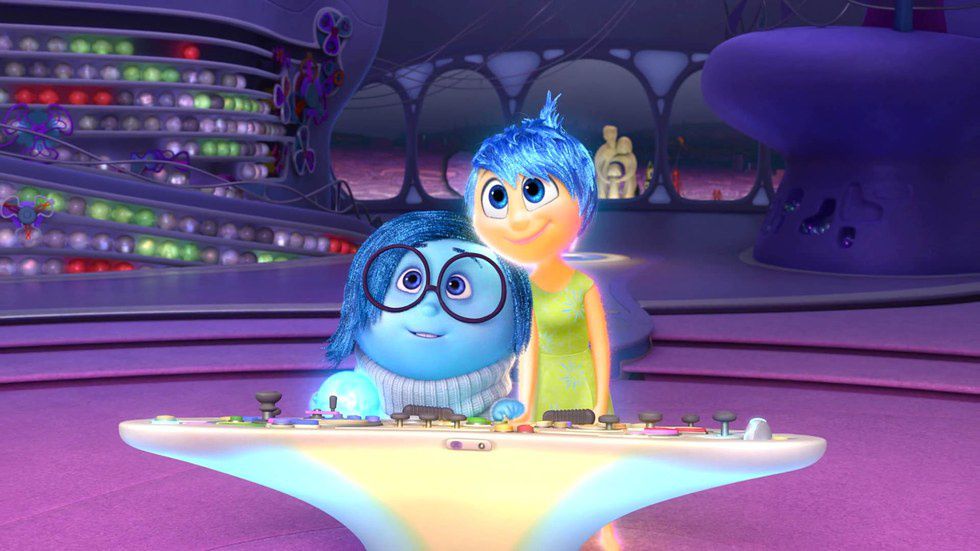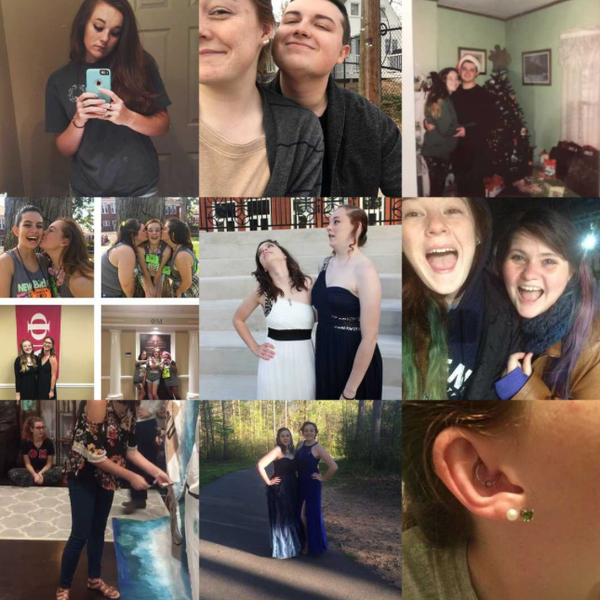Bless this movie. For anyone who hasn't seen this film, it centers around a girl named Riley and the five main emotions in her brain: Joy, Anger, Disgust, Fear, and Sadness. These five emotions are portrayed as colorful little mini-humanoids that run around and control our everyday interactions.
At first, the movie leads you to find the character of Sadness to be annoying. Her voice is melancholy, and she only talks about dreary things like "that movie where the dog dies". She even makes Riley cry in the middle of class in front of all her peers! Eventually Sadness causes the main conflict in the story, and we start to really not like her, and blame her for everything less-than-stellar that happens to Riley. Joy is frustrated with Sadness, and it's not hard to see why. After all, who doesn't want to be happy all the time?
But then Joy and Sadness meet Bing-Bong: Riley's old imaginary friend who is "part cat, part elephant, part dolphin". He misses Riley, and worries that she will forget him. When he begins to cry, Joy tries to enthusiastically cheer him up. She urges him to play a fun game, called "stop being sad and help her move the story along" (she doesn't say this verbatim, but it's close enough). When this doesn't work, Sadness begins talking to Bing-Bong. Joy starts to object, but stops when she realizes that Bing-Bong is better able to open up to Sadness about his feelings, than to her. This is the moment when the audience realizes that they had the wrong perception of Sadness.
But why?
Because with Sadness comes empathy. When we get rejected by someone, we cry. Our hearts break, and we feel sad. But then when someone else gets rejected, we have insight into how they are feeling, and we can properly talk to them about their feelings because we've been there, too.
As much as heartbreak and sorrow hurt, its a necessary part of life that all humans experience. To feel raw. To let the tears flow, and wash away all the pain pent up inside. Expression of sadness is cathartic and beautiful. We wouldn't be able to cope, or relate to one another without it.






















